Tag: Fuel Price
-

PDP rejects N170 fuel price, demands immediate reversal
The Peoples Democratic Party (PDP) has urged President Muhammadu Buhari to reverse the increase in the pump price of fuel which increased from N159 to N170 per liter.The party in a statement issued by its National Publicity Secretary, Mr Kola Ologbondiyan, on Friday in Abuja, rejected the increase describing it as unbearable to Nigerians.Ologbondiyan said it was also unacceptable given the prevailing economic crunch already confronting Nigerians.He said that the PDP insisted that the increase in the pump price would worsen the already “suffocating economic” situation in the country.He added that such hike would be an additional log tied on the economic neck of Nigerians.Ologbondiyan said that the government had no justification to increase the cost of fuel to anything above N100 per liter, let alone N170.He said that there was no such justification when there were practical options to maintain affordable price given Nigeria’s production capacity and potentialities.Ologbondiyan decried the continuous increase in the pump price of fuel.He added that government had yet to come clean on the parameters being used for the hike in prices vis-a-vis Nigeria’s production, export and accruing revenue.He said that energy officials had witheld the facts regarding the status and volume of oil production, sales and accruing revenue.This according to Ologbondiyan was in addition to government’s inability to fix our refineries and end crude oil theft.He added that fraud in the management of the country’s oil resources was responsible for the high costs and hardship being suffered by millions of Nigerians who could barely afford their meals and basic necessities of life.He called on President Muhammadu Buhari to take steps in fulfilment of his campaign promise to revamp Nigeria refineries, while urging him to get more competent hands to run the oil sector. -
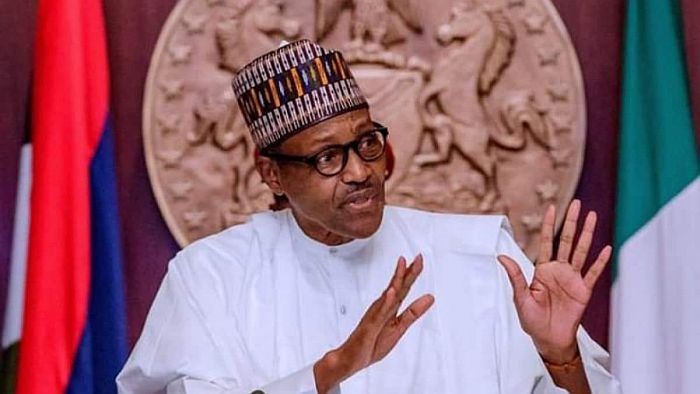
No regrets comparing fuel prices in Nigeria with Saudi Arabia, others – FG
The Federal Government says the comparison made by President Muhammadu Buhari on fuel prices between Nigeria, Saudi Arabia and other countries in his 2020 Independence Day national broadcast is justified.
Minister of Information and Culture, Alhaji Lai Mohammed, made the submission when he featured on a Radio Nigeria current affairs programme, “Radio Link’’ on Saturday in Abuja.
President Buhari said in his Independence Day broadcast that: “we sell petrol at N161 per litre when same is sold at N168 per litre in Saudi Arabia; N211 per litre in Egypt; N362 per litre in Ghana; N362 per litre in Chad, and N346 per litre in Niger Republic.
“It does not make sense for petrol to be cheaper in Nigeria than Saudi Arabia,’’
A cross section of Nigerians, however, criticised the president for making such comparison without considering the minimum wage, standard of living and infrastructure in Saudi Arabia in particular.
Responding to the critics, the minister said there was nothing wrong in making such comparison.
“Some people have said that why should we compare ourselves to Saudi Arabia with better infrastructure and higher wages.
“Our answer to that is very simple. Saudi Arabia has 34 million people while Nigeria has 200 million people.
“Saudi Arabia produces 10 million barrels of crude oil per day, while Nigeria produces at its best, 2.1 million barrel per day.
“Their population is about one-sixth of Nigeria’s population and they are blessed with more resources.
“Therefore, they can afford to pay higher wages and build infrastructure.
“Our argument must be put in proper perspective.
“As we have said, whatever money we make from the subsidy removal, we will invest in infrastructure development’’ he said.
The minister commended organised labour for its understanding and patriotism in suspending its planned strike to protest the fuel price deregulation and the electricity tariff adjustment.
He noted that the suspension of the strike by the Nigeria Labour Congress, the Trade Union Congress and their affiliates, averted a “national calamity’’.
Alhaji Mohammed said after spending sleepless nights engaging with organised labour, the two congresses agreed with government that the fuel deregulation was inevitable
“The moment we lost as much as 60 per cent of our earnings and suffered a kind of shock in crude oil prices, we must deregulate.
“Between 2006 and 2019 we paid N10.413 trillion in fuel subsidies; an average of N743.8 billion per annum,’’ he lamented.
“The country right now cannot afford the subsidy regime,’’ the minister stressed.
He said government agreed with labour that it would facilitate the setting up of many modular refineries and rehabilitate existing regular refineries to cushion the effect of the deregulation.
He said the Ministry of Petroleum Resources would intensify efforts to ensure that Nigerians could get alternatives such as gas to power their vehicles and machinery.
Alhaji Mohammed said that the first auto gas station would be inaugurated and opened to public next week in Lagos.
On electricity tariff adjustment, the minister explained that government agreed with labour to establish a joint committee to investigate and confirm that the price increase did not affect vulnerable Nigerians.
He said the committee would specifically ascertain and ensure that the price increase did not affect Nigerians who get less than 12 hours of electricity per day.
Alhaji Mohammed said government would provide five million households with solar power in the next 12 months.
He said the solar energy programme would benefit at least 25 million people and would create about 250,000 jobs.
The minister said government was also working toward providing other palliatives to cushion the effect of the tariff adjustment and fuel price deregulation.
-
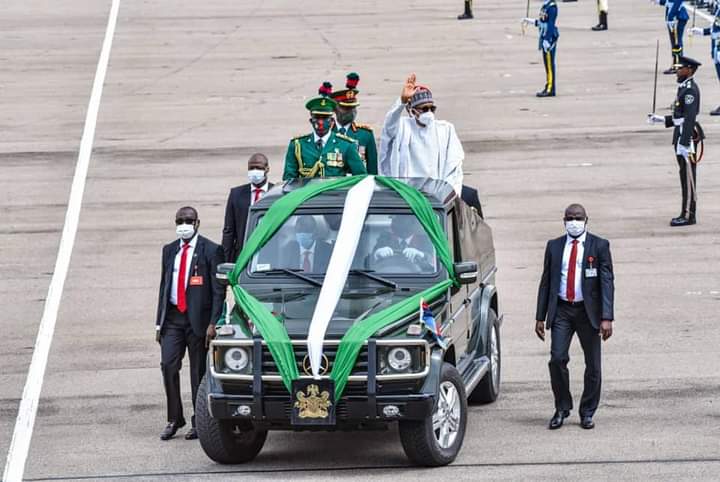
Nigeria @60: Urhobo group urges Buhari to make Nigerians happy again
The Abuja chapter of the Urhobo World United Union (UWUU), an umbrella body of Urhobo sons and daughters, has urged President Muhammadu Buhari to make Nigerians happy again.
TheNewsGuru.com (TNG) reports UWUU made the call on Thursday in Abuja, the federal capital territory as the nation marks her 60th independence anniversary.
According to the group, the recent increase in the pump price of fuel and increase in electricity tariff have made Nigerians unhappy.
Speaking with TNG, Francis Oberuefe, the Assistant Coordinator of UWUU, Abuja chapter, said despite the chaos, despite the so many issues besetting the country, the nation is marching on strong.
“Politically, we are moving forward. The government is trying it’s best to make life easy for the citizenry even when all is not well in the country. Despite the chaos, despite the so many issues besetting the nation, we are still moving on.
“How do we move this country forward in real terms? That is exactly the question we should be asking as a people as we mark our independence. We must know that for us to move the country forward, there is a prize to pay.
“One thing I will advise President Buhari is that he should be proactive enough to move the nation forward. With the remaining years in his tenure, he should be able to leave legacies he would be remembered for.
“He should be active. One of the areas I want the President to be really active, is the aspect of security. People are dying almost on a daily basis. Losing just one life is just too many. He should rejig the security architecture of the country to ensure citizens do not live in fear.
“Another area the President should look at is the area of food security. President Buhari should revamp the agricultural sector to ensure food security. He should do more in the sector. He has promised us that he is moving this country forward so we expect more from him,” he said.
Speaking in the same vein, Pharm Samuel Adamatie, an active member of UWUU commended President Buhari and said Nigerians need to support the programmes of government for the betterment of everyone.
While pleading with the President to listen to the plight of the people and make life bearable rather than increase the burdens of the people, the pharmacist supported the deregulation agenda of the FG but stressed the timing is wrong.
“I am not known to be a pessimistic individual. I would not say there is nothing to celebrate about Nigeria. We are not there yet. We are actually growing. We are still growing, just like every other nations of the world.
“But the question is how well have we grown. Listening to the President’s speech this morning, inasmuch as I have reservations, in all, it was a nice speech. I listened to it all along.
“The country needs support. We need to support the government’s programmes for the betterment of everyone. Enough of the complaints. Let us begin to work to influence our immediate environment and the country as whole. We are not totally there but there is light at the end of the tunnel.
“On the issue of deregulation, I totally support it but it should not be now. It should have been either before now or after this COVID-19 era. Not now. We all experienced the adverse effects of COVID-19. Other countries are providing palliatives to cushion the effects of COVID, we are deregulating. It should not be now. It should not be when we are still battling with COVID-19 and its after effects.
“On electricity, I totally disagree with the government when the government is yet to do the needful. I think the government is finding it difficult on what to do: whether to put the chicken before the hen or the hen before the chicken. This is not the time to increase anything in the name of boosting revenue generation.
“I plead with the President to listen to the plight of the people and make life bearable rather than increase the burdens of the people. He should also see to the security of lives and properties. Without security, the country will not move well. That is the major thing,” he said.
On his part, the Public Relations Officer (PRO) of the group, Noah Oghenebrorhien Akporehe noted that celebrating the 60th independence anniversary of Nigeria is a good thing, stressing that although there are lapses, that does not mean citizens should not celebrate.
He lamented the rate of unemployment and the hardship in the country, and pleaded with the federal government to bring down the price of fuel and reverse the increased electricity tariff.
He said: “There are certain things the government needs to put in place. This is why you will see that as we celebrate our independence, there is massive protests going on around the country.
“The rate of unemployment is high and in the midst of the COVID-19, the government still went ahead to increase the price of fuel and electricity tariff. It is not fair for the masses.
“Things are cost. People are crying. Things are not going on well with the people. The government should do a rethink on the decisions already taken. With that the people can be happy again.
“I want to plead with the federal government to bring down the price of fuel and reverse the increased electricity tariff. He should also give attention to the youths of the country. He should see to their welfare and provide jobs and make Nigerians happy again”.
-
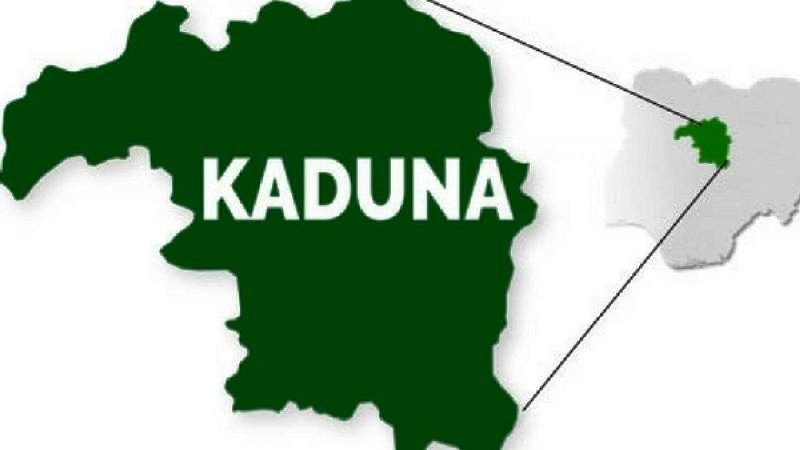
Pump price: Commuters in Kaduna lament 100 per cent increase in transportation
Commuters in Kaduna metropolis have lamented over 100 percent hike in transport fare following the recent increase of fuel pump price.
A cross section of commuters on Wednesday in Kaduna said they have been paying double transport fare due to the increased in fuel pump price.
Recall that the Federal Government had increased the price of petrol from N145 to N151.56 per litre.
Mrs Grace Musa of Sabo area told NAN that she now pays N200 as against N100 from Sabo to Kasuwa, adding that she spent close to N500 daily to and from her work place.
“The situation is pathetic considering the economic hardship of having to cater for the family,” she lamented.
Mr Silas Bawa, a resident of Narayi settlement said he spent about N600 daily on transport fare as against N200, adding, “if the situation persists, most people will resort to trekking”.
“I pay N200 to and from Narayi to Kasuwa besides okada fare directly to my office since Keke have been banned from operating on major roads,” he said.
Mallam Garba Mohammed, a commercial bus operator told NAN that commercial drivers were forced to increase their fares due to the hike in price of petrol.
“We now buy fuel at N161 as against the old price of N148 as such, drivers have no option but to increase transport fare,” he said.
Also, Aliyu Maikano, another commercial bus operator resident in Kurmin mashi, who said they had since adjusted to the new fares, however, pleaded with the government to consider reduction of the pump price.
-
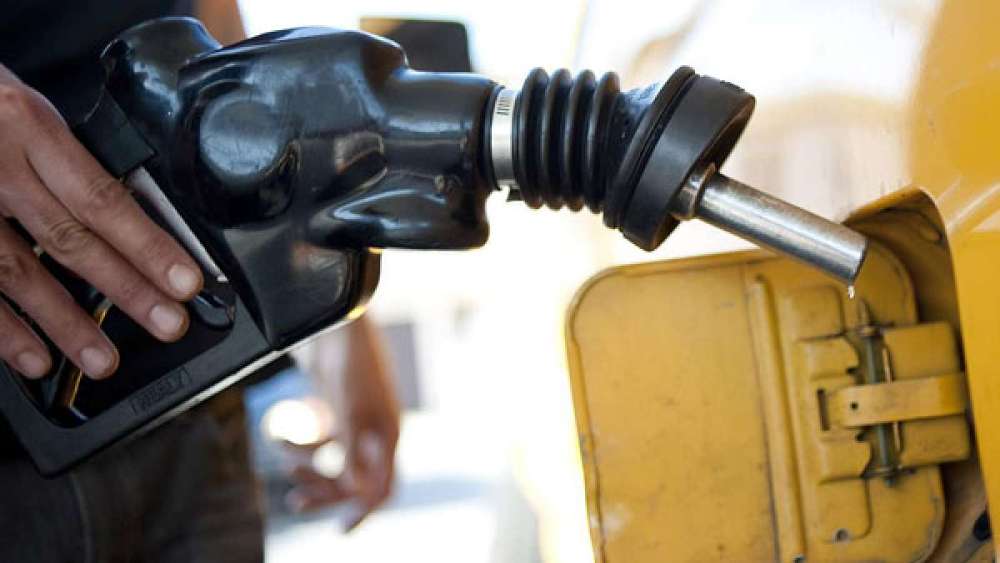
Fuel price: PPPRA owns up on contradiction in deregulation policy
The Petroleum Products Pricing Regulatory Agency (PPPRA) has assured Nigerians that the deregulation of the downstream oil sector is in the best interest of the country.
The Executive Secretary of the Agency, Saidu Abdulkadir, gave the assurance on Tuesday in Abuja, while briefing newsmen on the deregulation of the downstream oil and gas sector.
Abdulkadir said that the recent increase in the pump price of the Premium Motor Spirit, PMS, hinges on the global market and availability of forex to marketers.
Represented by Mr Victor Shidok, the General Manager, Administration and Human Relations, Abdulkadir said many marketers were yet to start importation of products due to non-availability of foreign exchange.
According to him, although the Petroleum Products Marketing Company (PPMC), a subsidiary of the Nigerian National Petroleum Corporation (PPMC), remained the sole importer of the product, PPPRA will continue to monitor development to check profiteering by marketers.
“The PPPRA as a regulator will continue the role of a watchdog in this deregulation regime. We will continue to maintain our role as a regulator and ensure that Nigerians are not short changed in any way in this process.
“You know how things are globally with the impact of COVID-19 to the global oil market. Accessing forex remains a challenge for marketers.
“We are hopeful that in a few months to come, Nigerians will understand what government is doing to stabilise the downstream sector,’’ he said.
Abdulkadir said that the agency would continue to monitor the code of conduct that guides operation of marketers in the industry and ensure that it was not violated.
He reiterated that government was no longer in business of fixing the pump price of petrol but would monitor marketers to avoid profiteering.
He hinted that the agency may not be able to provide monthly price band for the product as it contradicts the deregulation policy.
“If we give you the price band for this month, it is like price fixing’’ he said, and assured Nigerians that better days were ahead as things would normalise with time.
-

Fuel price hike: No protest will be allowed – Police
The Police Command in Borno, says it will not tolerate any form of protest capable of disrupting the “hard earned peace in the state’’.
DSP Edet Okon, the command spokesman, gave the warning in a statement on Tuesday in Maiduguri.
Okon said that available information indicated that some groups were planning protest against the hike in fuel price, electricity tariff, working conditions of state civil servants and N-power programme.
“In view of the above, the commissioner of Police Borno State, CP Mohammed Ndatsu Aliyu, wishes to state that such protest will not be condoned or by the command as this may sabotage efforts of the Federal and State Governments and that of the security agencies to ensure that the emerging peace and security in the state is sustained.
“The command is using this opportunity to remind members of the public that there is a ban on public rallies and all forms of procession in the state, and this ban, at the moment still subsist.
“The command advises that all forms of grievances should be brought to the table for all parties to chew on.
“It is pertinent to note that the organised labour in the State, via a press release dated 7th September, 2020 and titled `The organized labour will not be distracted’ has disowned and frowned at any form of agitation/protest,’’ Okon said.
He said based on the workers’ union position, any protest would be considered as an act of sabotage and a deliberate effort to breach the emerging peace and security in the state.
“All prospective protesters are by this release warned to steer clear of Borno State and respect the laws of the land,’’ Okon said.
-
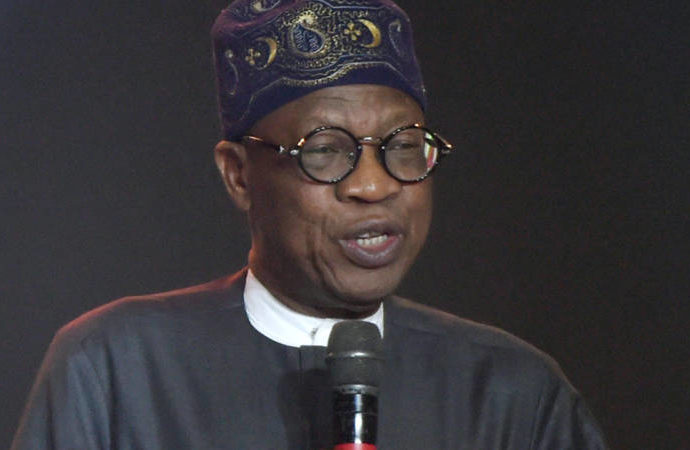
Nigeria’s new fuel price still cheapest in W/Africa, those protesting increase are mischievous – Lai Mohammed
The Minister of Information and Culture, Lai Mohammed, has defended the decision of the government to increase the price of Premium Motor Spirit (PMS), also known as petrol.
He attributed the increased amount to the global price of crude oil, saying the “angry reactions” that have greeted the latest petrol price were “unnecessary and totally mischievous”.
Mohammed made the remarks on Monday at a press conference in Abuja on the recent increases in petrol price and electricity tariff.
He explained that with the price of crude creeping up, petrol price was equally bound to increase, hence the latest price of N162 per litre.
The minister, however, believes if the price of crude drops again, the price of petrol will also drop and the benefits will also be passed on to the consumers.
He stressed that despite the recent increase in the price of petrol, that of Nigeria has remained the lowest in the West and Central African sub-regions.
According to Mohammed, petrol is being sold for N211 per litre and N168 per litre in Egypt and Saudi Arabia respectively.
On the hike in electricity tariff, he described the increase as a service-based adjustment by the Distribution Companies (DISCOS).
The minister stated that due to the problems with the largely-privatised electricity industry, the Federal Government has been supporting the sector.
He said while the government has so far spent almost N1.7 trillion, especially by way of supplementing tariffs shortfalls and does not have the resources to continue, borrowing to subsidise generation and distribution which have been privatised would be grossly irresponsible.
A fuel station in Lagos sells petrol at N162 per litre.
Read the minister’s full remarks at the press briefing below:
TEXT OF THE PRESS CONFERENCE ADDRESSED BY THE HON MINISTER OF INFORMATION AND CULTURE, ALHAJI LAI MOHAMMED, IN ABUJA ON MONDAY, 7 SEPT. 2020 ON THE RECENT INCREASES IN PETROL AND ELECTRICITY PRICES
PROTOCOL
Gentlemen of the press, good afternoon, and thank you for honouring our invitation to this press conference, which we have called to address the recent issues surrounding the price of fuel and electricity tariff.
FUEL PRICES
As you are aware, the long-drawn fuel subsidy regime ended in March 2020, when the Petroleum Products Pricing Regulatory Agency (PPPRA) announced that it had begun fuel price modulation, in accordance with prevailing market dynamics, and would respond appropriately to any further oil market development.
Recall that the price of fuel then dropped from 145 to 125 Naira per litre, and then to between 121.50 and 123.50 Naira per litre in May. With the low price of crude oil then, the cost of petrol, which is a derivative of crude oil, fell, and the lower pump price was passed on to the consumers to enjoy.
With the price of crude inching up, the price of petrol locally is also bound to increase, hence the latest price of 162 Naira per litre. If perchance, the price of crude drops again, the price of petrol will also drop, and the benefits will also be passed on to the consumers.The angry reactions that have greeted the latest prices of Premium Motor Spirit (PMS) are therefore unnecessary and totally mischievous.
Gentlemen, the truth of the matter is that subsidizing fuel is no longer feasible, especially under the prevailing economic conditions in the country.
The government can no longer afford fuel subsidy, as revenues and foreign exchange earnings have fallen by almost 60%, due to the downturn in the fortunes of the oil sector. Yet, the government has had to sustain expenditures, especially on salaries and capital projects.Even though we have acted to mitigate the effect of the economic slowdown by adopting an Economic Sustainability Plan, we have also had to take some difficult decisions to stop unsustainable practices that were weighing the economy down.
One of such difficult decisions, which we took at the beginning of the Covid-19 pandemic in March – when oil prices collapsed at the height of the global lockdown – was the deregulation of the prices of PMS.
As I said earlier, the benefit of lower prices at that time was passed to consumers. Everyone welcomed the lower fuel price then. Again, the effect of deregulation is that PMS prices will change with changes in global oil prices.This means quite regrettably that as oil prices recover, there will be some increases in PMS prices. This is what has happened now.
Government can no longer afford to subsidize petrol prices, because of its many negative consequences. These include a return to the costly subsidy regime. With 60% less revenues today, we cannot afford the cost. The second danger is the potential return of fuel queues – which has, thankfully, become a thing of the past under this Administration.
The days in which Nigerians queue for hours and days just to buy petrol, often at very high prices, are gone for good. Of course, there is also no provision for fuel subsidy in the revised 2020 budget, because we just cannot afford it.Gentlemen, the cost of fuel subsidy is too high and unsustainable. From 2006 to 2019, fuel subsidy gulped 10.413 Trillion Naira. That is an average of 743.8 billion Naira per annum.
According to figures provided by the NNPC, the breakdown of the 14-year subsidy is as follows:– In 2006 Subsidy was 257bn
– In 2007 Subsidy was 272bn
– In 2008 Subsidy was 631bn
– In 2009 469bn
– In 2010 667bn
– In 2011 2.105tn
– In 2012 1.355tn
– In 2013 1.316tn
– In 2014 1.217tn
– In 2015 654bn
– In 2016 Figure Not Available
– In 2017 Subsidy was 144.3bn
– In 2018 730.86bn
– And in 2019 Subsidy was 595bn
The Federal Government is not unmindful of the pains associated with higher fuel prices at this time. That is why we will continue to seek ways to cushion the pains, especially for the most vulnerable Nigerians.
The government is providing cheaper and more efficient fuel in form of autogas. Also, Government, through the PPPRA, will ensure that marketers do not exploit citizens through arbitrarily hike in pump prices.And that is why the PPPRA announced the range of prices that must not be exceeded by marketers.
9 In spite of the recent increase in the price of fuel to 162 Naira per litre, petrol prices in Nigeria remain the lowest in the West/Central African sub-regions.
Below is a comparative analysis of petrol prices in the sub-regions (Naira equivalent per litre);
– Nigeria – 162 Naira per litre
– Ghana – 332 Naira per litre
– Benin – 359 Naira per litre
– Togo – 300 Naira per litre
– Niger – 346 Naira per litre
– Chad – 366 Naira per litre
– Cameroon – 449 Naira per litre
– Burkina Faso – 433 Naira per Litre
– Mali – 476 Naira per litre
– Liberia – 257 Naira per litre
– Sierra Leone – 281 Naira per litre
– Guinea – 363 Naira per litre
– Senegal – 549 Naira per litre
Outside the sub-region, petrol sells for 211 Naira per litre in Egypt and 168 Naira per litre in Saudi Arabia.
You can now see that even with the removal of subsidy, fuel price in Nigeria remains among the cheapest in Africa.ELECTRICITY TARIFF
Another issue we want to address here today is the recent service-based electricity tariff adjustment by the Distribution Companies or DISCOS.
The truth of the matter is that due to the problems with the largely-privatised electricity industry, the government has been supporting the industry.To keep the industry going, the government has so far spent almost 1.7 trillion Naira, especially by way of supplementing tariffs shortfalls. The government does not have the resources to continue along this path.
To borrow just to subsidise generation and distribution, which are both privatized, will be grossly irresponsible.
But in order to protect the large majority of Nigerians who cannot afford to pay cost-reflective tariffs from increases, the industry regulator, NERC, has approved that tariff adjustments had to be made but only on the basis of guaranteed improvement in service.
Under this new arrangement, only customers with guaranteed minimum of 12 hours of electricity can have their tariffs adjusted. Those who get less than 12 hours supply will experience no increase.This is the largest group of customers.
Government has also noted the complaints about arbitrary estimated billing. Accordingly, a mass metering programme is being undertaken to provide meters for over 5 million Nigerians, largely driven by preferred procurement from local manufacturers, and creating thousands of jobs in the process.
NERC will also strictly enforce the capping regulation to ensure that unmetered customers are not charged beyond the metered customers in their neighbourhood. In other words, there will be no more estimated billings.The government is also taking steps to connect those Nigerians who are not even connected to electricity at all. As you are aware, under its Economic Sustainability Plan, the government is providing solar power to 5 million Nigerian households in the next 12 months.
This alone will produce 250,000 jobs and impact up to 25 million beneficiaries through the installation, thus ensuring that more Nigerians will have access to electricity via a reliable and sustainable solar system.Gentlemen, please note that despite the recent service-based tariff review, the cost of electricity in Nigeria is still cheaper or compares favourably with that of many countries in Africa.
COST IN NAIRA PER KWH IN SOME AFRICAN COUNTRIES.– Nigeria 49.75
– Senegal 71.17
– Guinea 41.36
– Sierra Leone 106.02
– Liberia 206.01
– Niger 59.28
– Mali 88.23
– Burkina Faso 85.09
– Togo 79.88
CONCLUSION
Gentlemen, the timing of these two necessary adjustments, in the petroleum and power sectors, has raised some concerns among Nigerians. This is a mere coincidence.
First, the deregulation of PMS prices was announced on 18 March 2020, and the price modulation that took place at the beginning of this month was just part of the on-going monthly adjustments to global crude oil prices.Also, the review of service-based electricity tariffs was scheduled to start at the beginning of July 2020 but was put on hold so that further studies and proper arrangements can be made.
Like Mr President said today, at the opening of the Ministerial Retreat, this government is not insensitive to the current economic difficulties our people are going through and the very tough economic situation we face as a nation. We certainly will not inflict hardship on our people.But we are convinced that if we stay focused on our plans, brighter and more prosperous days will come soon.
The opportunistic opposition and their allies are playing dirty politics with the issue of petrol pricing and electricity tariff.
Please note that these naysayers did not complain when the price adjustment led to lower petrol prices on at least two occasions since March.Nigerians must therefore renounce those who have latched onto the issue of petrol pricing and electricity tariff review to throw the country into chaos.
19. I thank you all for your kind attention
-

Abuja residents moan, groan under harsh economic conditions
…commercial transporters double cost
…’keke’ and okada riders increase cost by 50 percent
…there’s palpable fear that a bag of foreign rice may hit N50k by December
It was moaning and groaning as Abuja residents bitterly complain about the high cost of living in satellite towns barely one week after the federal government increased electricity tarrif and cost of fuel.
A short survey conducted by TheNewsGuru.com (TNG) clearly indicate that all is not well with Nigerians residing in the capital city of Nigeria.
At the Kubwa market and other smaller markets in 2/1, Biazhim and Arab Road the story is all the same.
A bag of local rice now costs N26,000.00 from the initial price of N24,000.00.
Imported rice now costs N32,000.00 from the initial cost of N28,000.00 as at last week.
A kilo of cow meat now costs N2,000.00 from N1,500.00 in Kubwa, Dutse and Dede markets.
Some of the traders that spoke to TNG said FG is insensitive to the plights of the poor man as it’s already too difficult surviving with the crippling effects of the pandemic.
Madam Theresa Uziohu from Kogi State, a petty trader said, “oga mi how things no go go up when be say from big markets transport don go up.
“Now, we dey pay more for NEPA and government know say we need freezer to cool the fish make e for no spoil.
“This government no like poor people at all we think say oga Buhari go help us we no know say na hunger be him second name.
At Biazhim, a rural settlement in Kubwa, the ever busy market was scanty as market women display their wares without buyers to purchase them.
In a chat with a lady who simply gave her name as Clara from Imo State, she said, “as you can see oga na rice I dey sell and from Abakaliki reach here transport no be here sir.
“For East fuel na N180 per litre so you no fit blame transporters because no be their fault oga.
“Before now from NNPC bus stop reach here for market na N200 now na N400. How much I wan gain wen Keke don dey eat my profit.
“Just wait and see by December a bag of foreign rice fit reach N50,000.00 and local rice N40,000.00”.
-
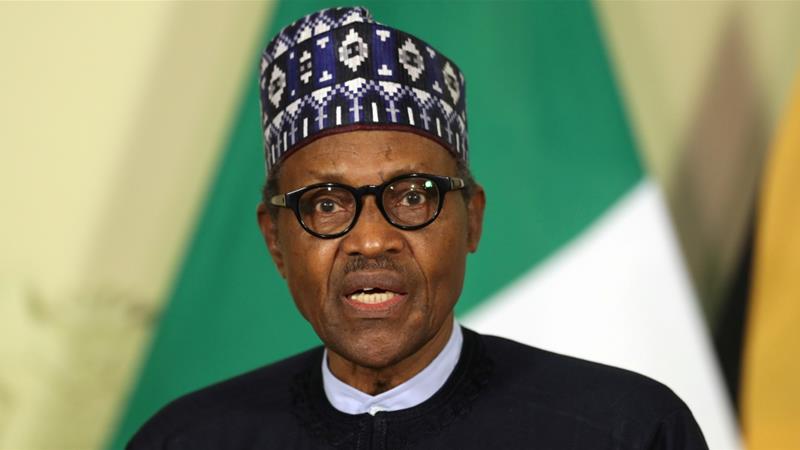
Why Buhari allowed hike in fuel price, electricity tariffs despite COVID-19 challenges – Presidency
The Presidency says in these challenging times, President Muhammadu Buhari is pushing development goals not politics and history will judge him in favourable terms in spite of criticism on social media.
Malam Garba Shehu, the President’s Senior Special Assistant on Media and Publicity, made this known in a statement in Abuja on Sunday.
The presidential aide was reacting to comments on the Buhari administration following upward review of the pump price of fuel and electricity tariffs in the country.
Shehu maintained that subsidy removal in these sectors had long been foreseen by successive administrations as game changers in search of solutions to move forward with the nation’s development.
According to him, these are reforms that are necessary and overdue.
He said: ”To stop the mismanagement of taxpayers money, eliminate corruption associated with subsidies on petroleum products, power, fertilizer among others, the administration took the decision to implement long-delayed reforms, withdraw and allow the market to determine their prices.
”Blueprint upon blueprint, timeline upon timeline had come and gone but courage to take bold decisions was not there.
”Over the last few days, one claim acquiring a potent resonance with the online community, sections of the labour movement and the opposition is that the actions are ill-timed and ill-advised.
”There is nothing new in the fact that the country is today fighting multiple challenges along with COVID-19, including low earnings, near-collapse of the oil market, floods, threats of terrorism and banditry but the challenges notwithstanding, a good government must take decisions for the people’s good.
”As President, Muhammadu Buhari takes these difficult decisions, both popular and unpopular and as a leader because he is demonstrating the right courage to take such decisions as they become necessary in view of present circumstances.”
The presidential aide expressed the hope that history would remembered Buhari as the president who embarked on transformation of the nation economy for the general good of the citizens.
He stated that the ongoing reforms in the energy as well as oil and gas sectors would eliminate all the evils of corruption embedded in the sectors.
He, therefore, stressed the need for all well meaning individuals, civil society groups and labour movements to support the president’s bold initiatives to transform the economy for the betterment of all citizens.
”History will be kind to President Buhari because in addition to his amazing ability to command votes, he will be remembered as the President who made real contributions to economic and overall national development by eliminating the evils of corruption embedded in subsidies.
”In any democracy, the most important certificate in governance is acceptance by the people and, with the support of ordinary Nigerians, President Buhari has shown a rare determination to carry out the bold initiatives as these ones driven by nothing other than the greatest good for the greatest number of people.
”In carrying out the reforms, the President needs the support and understanding of all citizens, inclusive of the opposition parties, the labour movement and civil society groups,” he said.
-
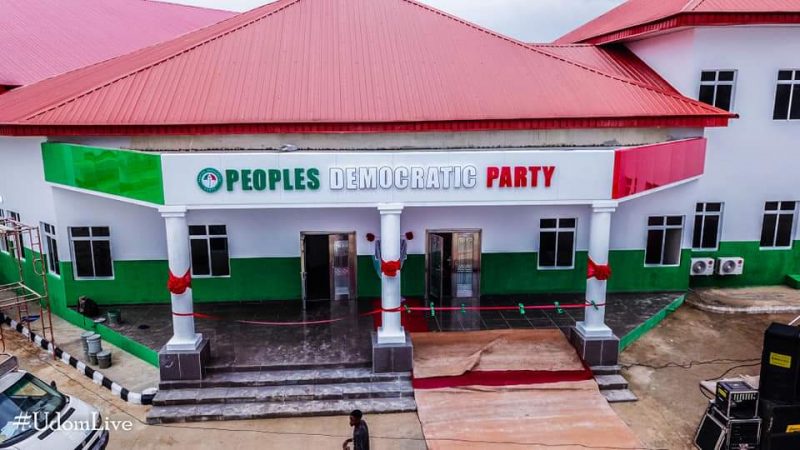
PDP rejects N151 fuel price, hike in electricity tariff
Nigeria’s major opposition, the Peoples Democratic Party (PDP) has rejected the latest increase in pump price of fuel from N145 to N151 per litre.
The party also rejected increase in electricity tariff to N66 per kwh which came into effect on September 1.
It described the new price regime as callous, cruel and punishing.
In a statement on Wednesday by its spokesman, Kola Ologbondiyan, the main opposition party demanded immediate reversal of the prices to avert a national crisis.
The PDP noted the increase will result in upsurge in costs of goods and services and worsen the biting hardship faced by Nigerians, who are already impoverished and overburdened by high costs of living imposed by the government in the last five years.
The party said: “It is distressing that the APC administration increased the cost of essential commodities at the time the leadership of other countries are offering palliatives to their citizens to cushion the effects of the COVID-19 pandemic. It is instructive to add that our nation is doomed under the APC watch.
“We know that the APC is an unfeeling party but it is indeed shocking that it could go to the extent of approving such a hike at this trying time, when many Nigerians are struggling to afford staple foods and other necessities of life”.
The party challenged the APC and the Buhari administration to publish the parameters with which they arrived at the increase in fuel price to N151 per litre given that with the prevailing values in the international market, the appropriate template for domestic pump price in Nigeria ought not to be above N100 per litre.
“Moreover, the APC and its government have failed to allow an open investigation into allegations of fuel price overcharge as well as the fraudulent subsidy regime through which over N14 trillion had allegedly been frittered by unscrupulous individuals in the APC.
“Our fear is that the APC is pushing Nigerians to the wall with its obnoxious and anti-people proclivities and we caution that nobody should misinterpret the peaceful and law-abiding nature of Nigerians as a sign of weakness.
“Our party therefore restates our call on the National Assembly to save the nation by calling the APC and its administration to order before they plunge our nation into chaos,” the PDP said.